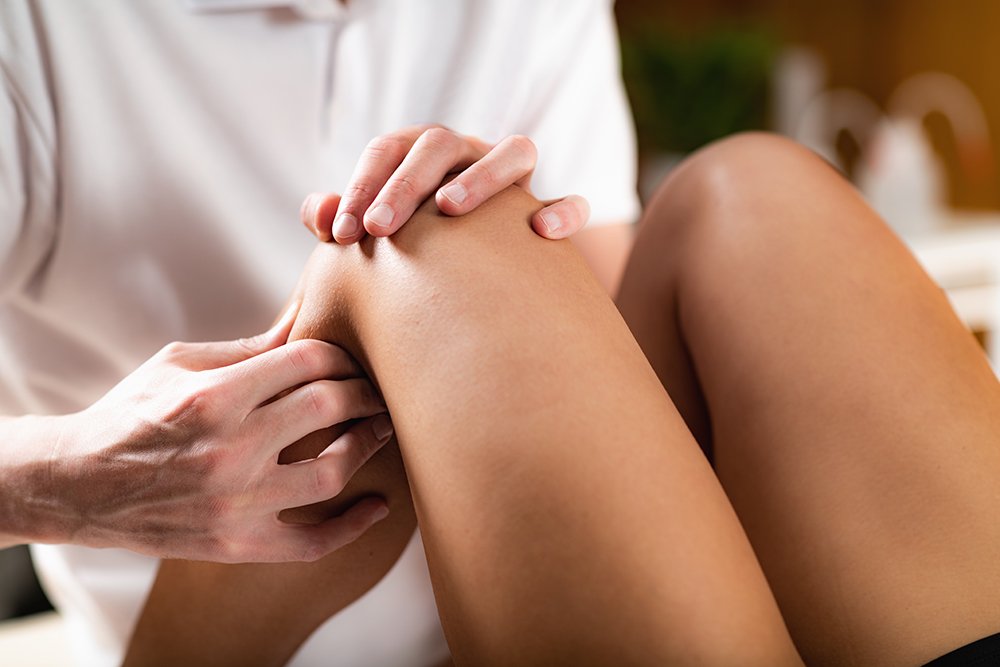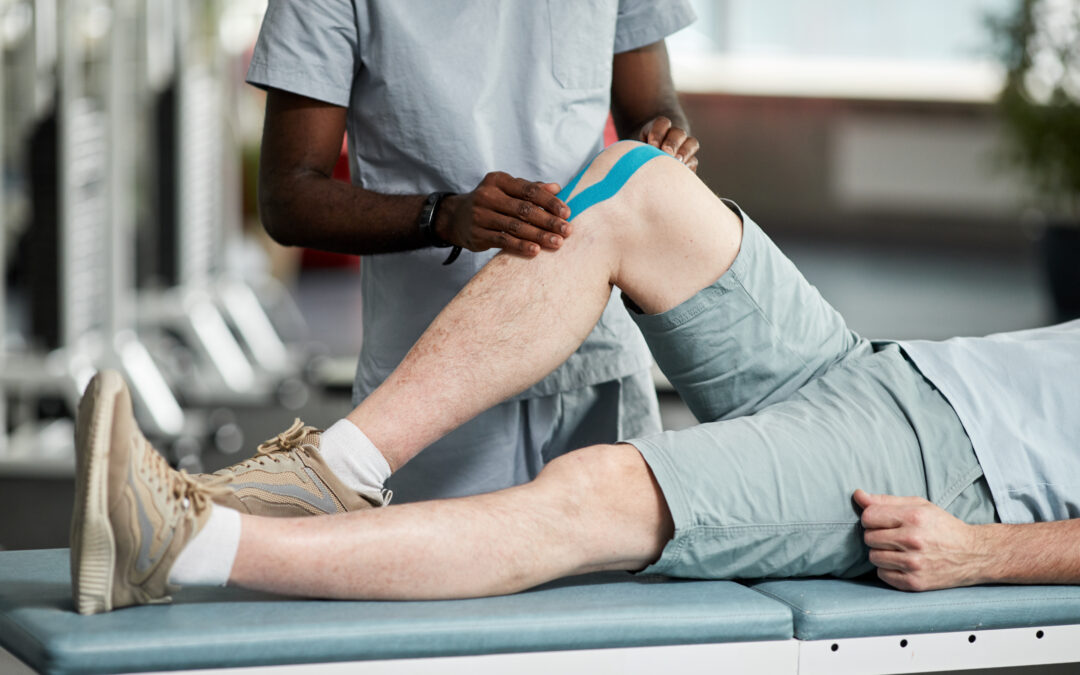Contents
Stiffness and tightness in the knees can often be caused by an injury to a tendon, ligament or cartilage inside the knee or possibly an underlying condition.
Causes for stiff and tight knees often fall into two categories: an injury or a chronic condition. An injury is usually a traumatic event where a hard fall, sharp blow or trip occurred and the knee was hurt in some way.
For instance, if you were playing baseball and accidentally got hit by the ball on the side of your knee, then you may have injured your knee. An injury will have automatic symptoms after the event making the cause of the stiffness and tightness of your knee pinpointed.
However, an underlying chronic condition may take time to develop as they often occur because of gradual wear and tear on the body. A chronic condition may also be harder to pinpoint alone. Talk to a medical professional if you have tightness or stiffness in your knee but haven’t injured it recently, as these could be symptoms of a chronic condition.
6 injuries or chronic conditions that may be causing tight and stiff knees
Learning more about injuries and chronic conditions that cause tight, stiff knees may help you better identify what is behind your symptoms. Your symptoms may also not be isolated to just stiff or tight knees, and knowing what other symptoms specific injuries and conditions have could help you get more effective treatment and recover faster.
These six injuries and chronic conditions are common causes of tight and stiff knees:
1. Osteoarthritis
Osteoarthritis is the most common form of arthritis. It is a degenerative condition caused by age-related wear and tear in your joints. Osteoarthritis typically affects your joint cartilage, but it can also cause wearing on the bones of your knees in its later stages.
This condition can cause varying levels of pain in joints such as your knees, hips, lower back, hands and neck. Symptoms of knee osteoarthritis can include:
- Stiffness and tightness in the knee.
- Knee pain.
- Tenderness around the knee joint.
- Loss of mobility in the knee.
- Grating sensations when moving the knee.
- Swelling and inflammation.
- Bone spurs developing in the affected knee.
2. Bursitis
This condition is where small, fluid-filled sacs called bursae that cushion the bones, tendons and muscles near your joints become inflamed. Common causes of knee bursitis are a knee injury, overuse or an infection in the knee joint.
If you have knee bursitis, your knee may feel tender or swollen to the touch. You may also feel pain in your knee when you move it or even when you don’t. In addition, your knee may have a significantly reduced range of motion.
- Rheumatoid arthritis
Rheumatoid arthritis is an autoimmune disorder that can trigger inflammation in your joints. It occurs when your immune system starts mistakenly attacking tissue in your body. Rheumatoid arthritis causes painful swelling to occur in the lining of your joints.
It can also cause symptoms like:
- Tenderness in the joints.
- Joints that feel warm to the touch.
- Stiffness that’s often worse in the morning or after periods of inactivity.
Typically, rheumatoid arthritis first affects smaller joints like those in your hands or toes first. As it progresses, your symptoms can spread to larger joints like your knees. Rheumatoid arthritis symptoms may also get suddenly worse, which is called a flare-up. However, your symptoms may also fade or disappear in between flare-ups.
4. Arthrofibrosis
Arthrofibrosis is a knee condition where collagen is overproduced and creates adhesions, or bands of scar tissue in your joint. These adhesions lessen flexibility and mobility in the joint and make movement painful. This condition is typically caused by chronic or repetitive knee injuries or surgery.
Symptoms of arthrofibrosis in the knee can include:
- Knee pain that can be severe and constant.
- Stiffness.
- A limited ability to straighten the leg.
- Limping.
- Swelling or feelings of warmth in the joint.
- Grating sounds or sensations when moving the knee.
- A reduced ability to bend the leg.
5. Gout
Gout is a type of inflammatory arthritis that usually flares up for a week or two and then resolves without treatment. It is caused by a buildup of a substance called uric acid in the blood. This substance is supposed to be filtered out of the blood by your kidneys. If your kidneys don’t filter it all out or if there is too much uric acid in your blood, it can cause tiny, sharp crystals to form around or inside your joints.
These crystals can make moving the joint painful and cause swelling in your joints. You may also experience tenderness in your knee or it may feel hot to the touch. In addition, your skin may be red or shiny over the affected joint and/or you may have peeling, itchy and flaky skin.
6. Knee ligament injuries
The anterior cruciate ligament (ACL) is one of the most well-known knee ligaments. It’s this ligament that so many sports players injure every season. However, there are three other knee ligaments that also help stabilize the knee joint and connect the thighbone to the bones of your lower leg. These ligaments can also be injured.
Common symptoms of knee ligament injuries are:
- Sudden and often severe pain when the injury occurs.
- A loud pop or a snapping sensation in the knee when the injury occurs.
- Swelling in the knee.
- A feeling of looseness in the injured knee.
- Difficulty or a complete inability to put weight on the injured knee without causing pain.
It’s vital that you seek immediate medical attention for a knee ligament injury.
Tired of living with tight, stiff knees? Lattimore PT offers PT that can help
At Lattimore PT, we have skilled professionals who can help you find the best treatment options for your tight, stiff knees. One of our physical therapists can help diagnose the injury or chronic condition that’s causing your symptoms. They can then create a unique treatment program for you that’s designed to help ease your symptoms.
Contact our team today for more information about how we can help your knees or to schedule your initial PT appointment with us.



